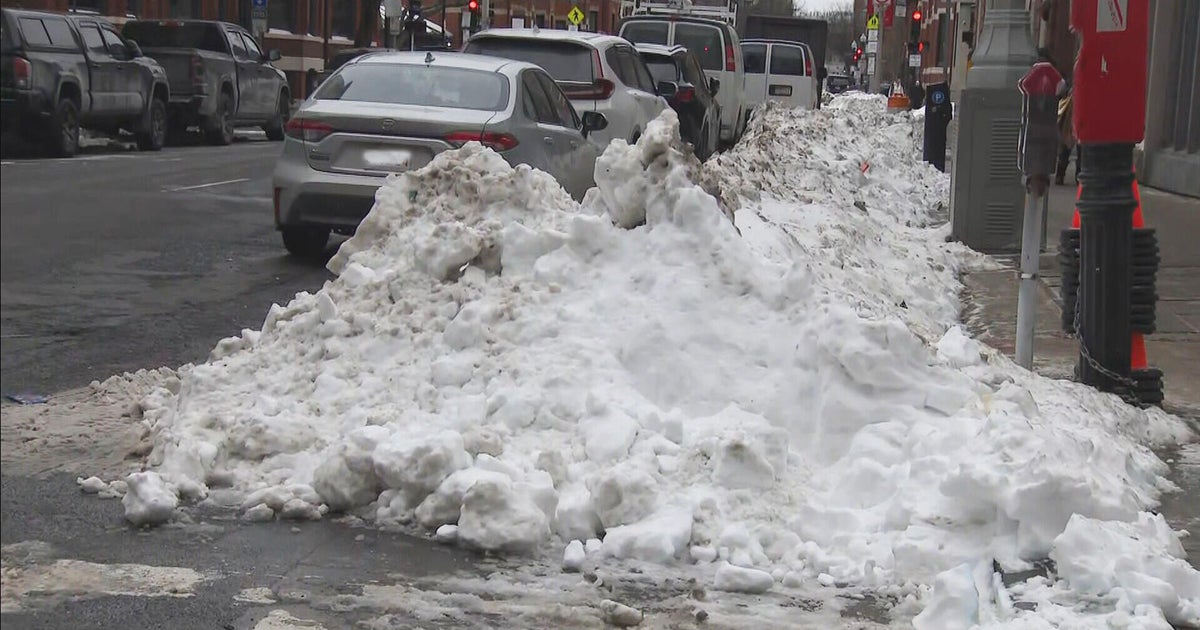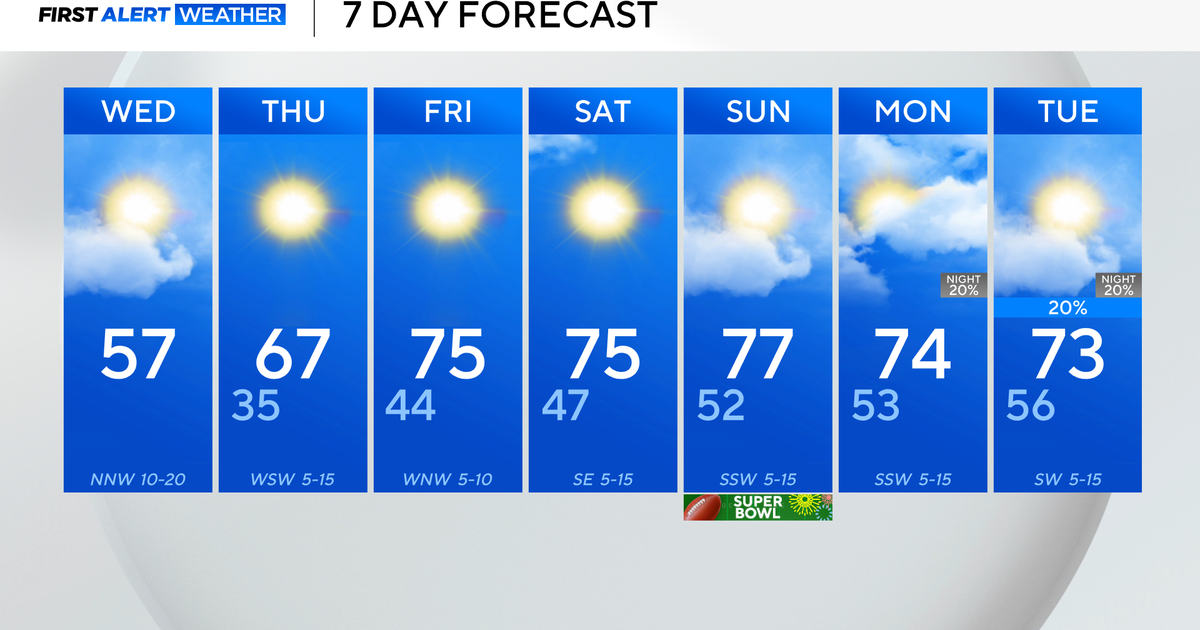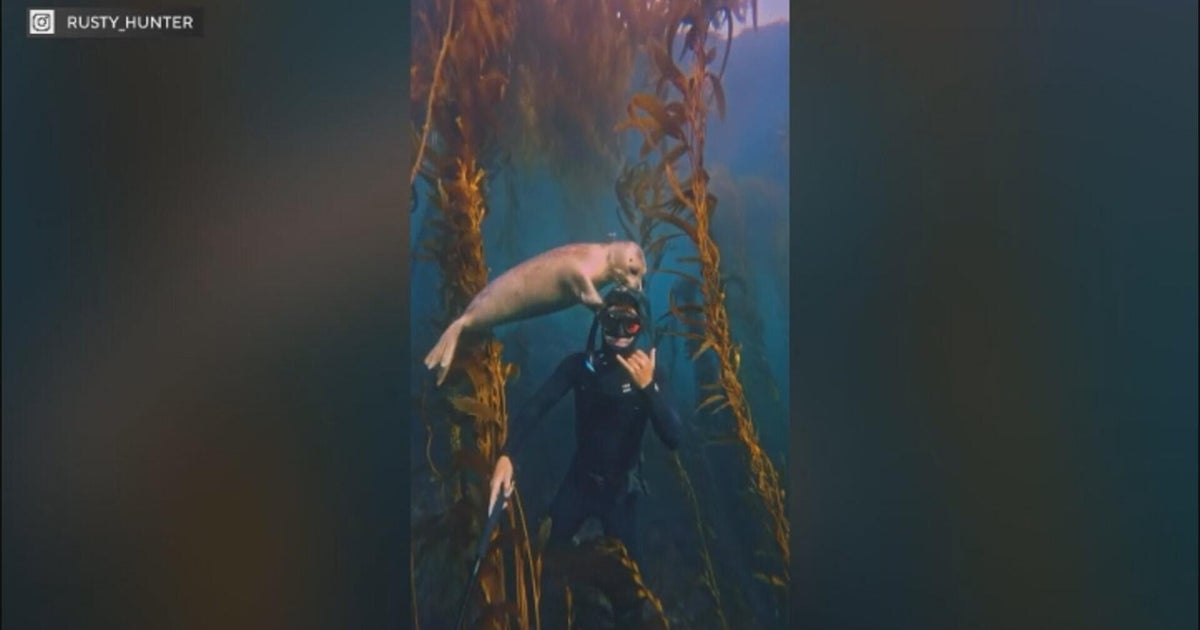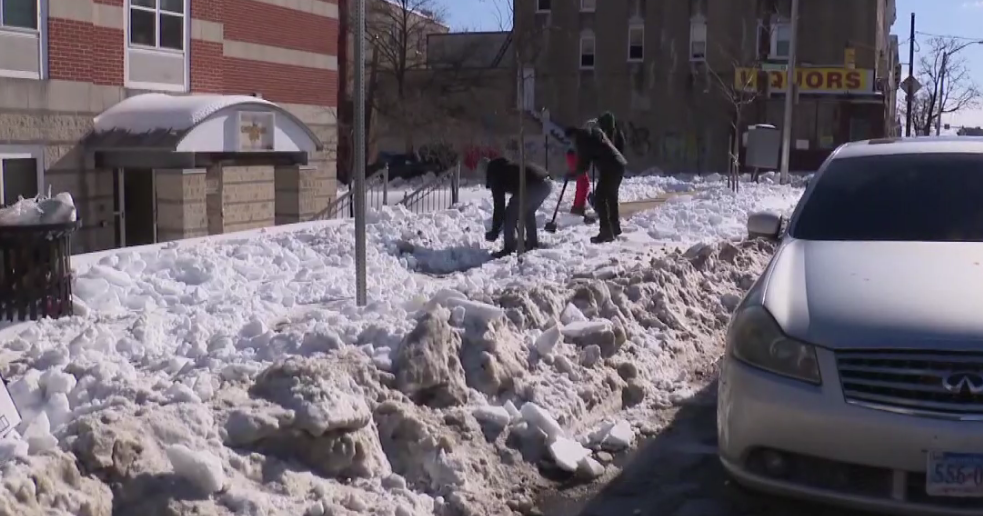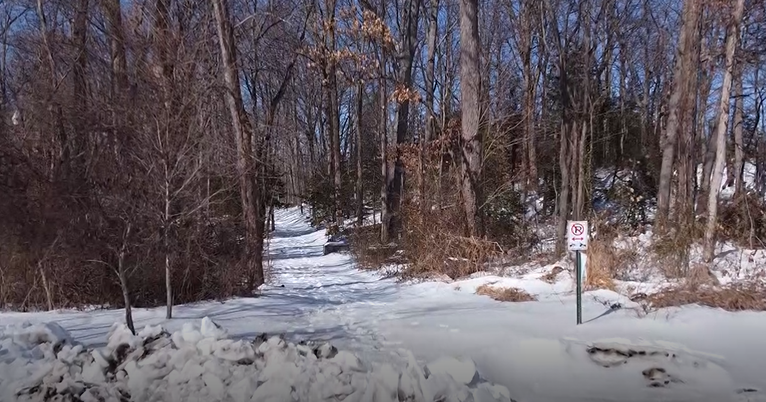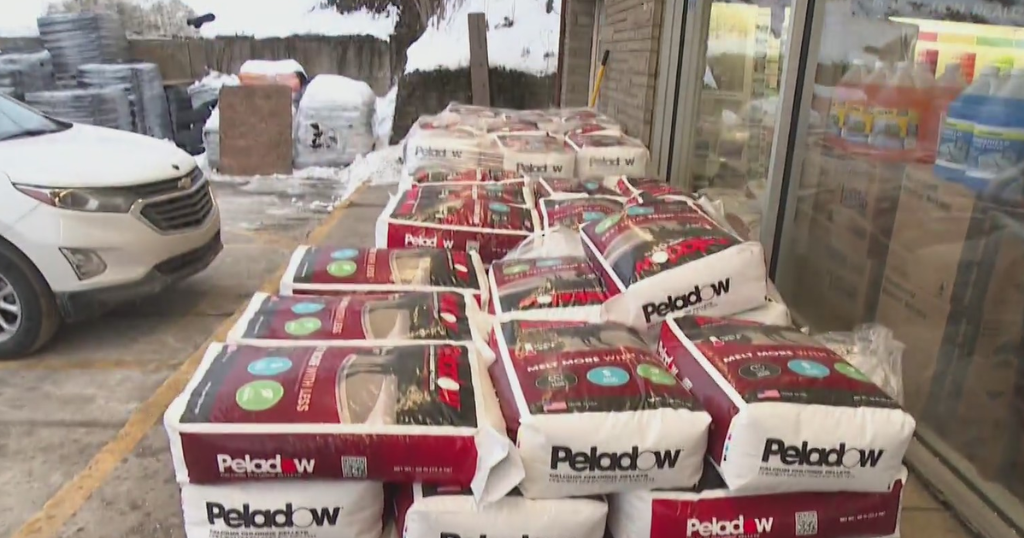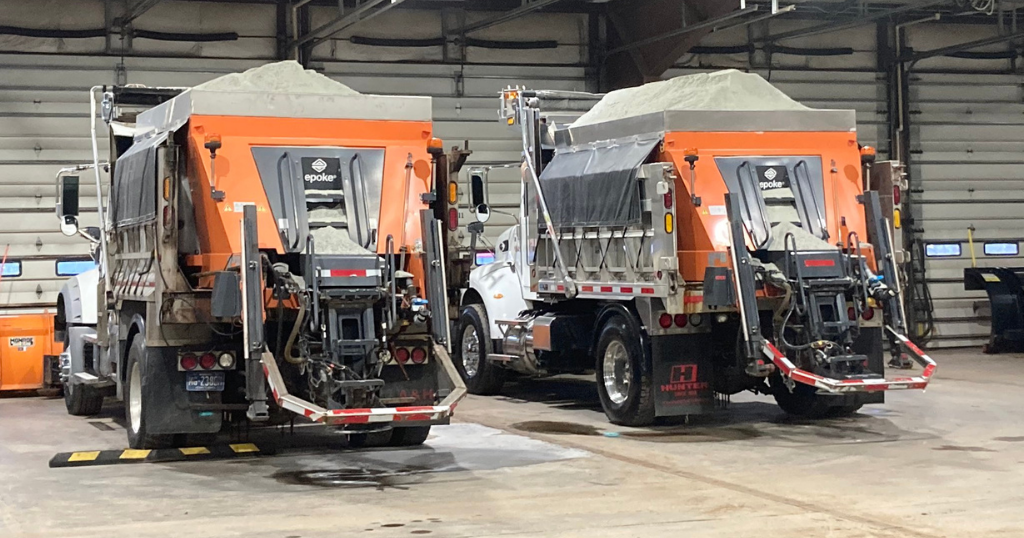Hurricane Harvey Makes Landfall Along Texas Coast As Category 4 Storm
HOUSTON (CBSNewYork/AP) — The National Hurricane Center says the eye of Hurricane Harvey has come ashore on the Texas coast.
The center said the eye made landfall around 10 p.m. Friday about 30 mph east-northeast of Corpus Christi between Port Aransas and Port O'Connor, Texas, bringing with it 130 mph sustained winds and flooding rains.
The hurricane, with the potential for up to 20 inches of rain and 130 mph winds, could be the fiercest such storm to hit the United States in almost a dozen years.
Forecasters labeled Harvey a "life-threatening storm" that posed a "grave risk" as millions of people braced for a prolonged battering that could swamp dozens of counties more than 100 miles inland.
The storm quickly grew Thursday from a tropical depression into a Category 1 hurricane, and then developed into a Category 2 storm early Friday. By Friday afternoon, it had become a Category 3 storm before strengthening to a Category 4.
Harvey is the first Category 4 hurricane to hit the Texas coast since Hurricane Carla in 1961.
It is the first significant hurricane to hit Texas since Ike in September 2008 brought winds of 110 mph to the Galveston and Houston areas and inflicted $22 billion in damage. It's also the first big storm along the middle Texas coast since Hurricane Claudette in 2003 caused $180 million in damage.
The storm has already impacted oil and gas production, and hurricane researchers warn the economic fallout and damage from Harvey could be on par with Hurricane Katrina.
Superstorm Sandy, which pummeled New York and New Jersey in 2012, never had the high winds and had lost tropical status by the time it struck. But it was devastating without formally being called a major hurricane.
Earlier in the day, Texas Governor Greg Abbot urged everyone to head inland.
"The most important thing you can do is to safeguard your own life," he said.
The center said preparations for the storm "should be rushed to completion" along Texas' central Gulf Coast.
Abbott said there was still time for coastal residents in the path of Harvey to get out of harm's way. But he said they must leave immediately.
He has expressed concerns that not as many people were evacuating compared with previous storms as Harvey bears down on the state.
"A lot of people are taking this storm for granted thinking it may not pose much of a danger to them," Abbott told Houston television station KPRC. "Please heed warnings and evacuate as soon as possible."
"We expect as much as 6 to 12 feet rise of water," said National Hurricane Center Deputy Director Ed Rappaport.
"Brace yourself," Garrett Holder, a firefighter in Corpus Christi, advised. "Prepare for the worst and try to get out of town as quickly as you can."
Chris Rittgers, however, isn't leaving.
"I decided to stay to protect my house," he told CBS2's Weijia Jiang.
When asked if he's worried, he said: "A little bit. i'm mainly worried about my kids."
One Corpus Christi retirement home loaded residents for the ride to Austin.
"I would have preferred to hunker down, but my concerns are for the people of Corpus Christi and the city," said Carol Didier.
Forecasters said there's also a good chance Harvey may hit Texas twice, worsening projected flooding.
The National Hurricane Center's official five-day forecast Friday has Harvey slamming the central Texas coast, stalling and letting loose with lots of rain. Then forecasters project the weakened but still tropical storm is likely to go back into the Gulf of Mexico, gain some strength and hit Houston next week.
Jeff Masters, Weather Underground's meteorology director, said this could cause a collision of high water with nowhere to go. A second landfall near Houston means more storm surge coming from the Gulf.
All seven Texas counties on the coast from Corpus Christi to the western end of Galveston Island have ordered mandatory evacuations of tens of thousands of residents from all low-lying areas. In four of those counties, officials ordered their entire county evacuated and warned those who stayed behind that no one could be guaranteed rescue.
Voluntary evacuations have been urged for Corpus Christi itself and for the Bolivar Peninsula, a sand spit near Galveston where many homes were washed away by the storm surge of Hurricane Ike in 2008.
"We don't know what's going to happen," one resident said. "We don't know if we're going to come back to a home or what damage we're coming home to. So it's sad. It's scary."
Abbott has activated about 700 members of the state National Guard ahead of Hurricane Harvey making landfall.
Harvey's effect would be broad. The hurricane center said storm surges as much as 3 feet could be expected as far north as Morgan City, Louisiana, some 400 miles away from the anticipated landfall.
And once it comes ashore, the storm is expected to stall, dumping copious amounts of rain for days in areas like flood-prone Houston, the nation's fourth most-populous city, and San Antonio.
"The concern here is as it makes its way back to the southeast, possibly over the open water, we could see a restrengthening maybe going into Tuesday of next week," said KTVT Chief Meteorologist Scott Padgett.
The Houston ship channel is the second-largest oil and gas complex in the world.
"We could see the worst environmental disaster in United States history and would probably shut down and cause a major gap in gasoline," said Jim Blackburn with the Center for Severe Storm Prediction at Rice University.
Coastal residents are taking Harvey seriously. Many boarded up their homes and stocked up on supplies as officials urged them to get out and head as far inland as possible.
"The more I watch of it, the more I'm just not going to take that chance," said resident Roland Casrez.
State transportation officials were considering when to turn all evacuation routes from coastal areas into one-way traffic arteries headed inland.
John Barton, a former deputy executive director of the Texas Department of Transportation, predicted state officials will do this before the storm hits, but said timing and determining where to use it are the key factors. Storms change paths and if contraflow starts too early, supplies such as extra gasoline needed to support impacted areas can't get in, he said.
President Donald Trump said on Twitter Friday that he had spoken with Abbott and Louisiana Gov. John Bel Edwards.
"Closely monitoring #HurricaneHarvey developments & here to assist as needed,'' he added.
In another tweet, the president said he received a hurricane briefing from top federal officials.
He later tweeted he signed "the Disaster Proclamation, which unleashes the full force of government help."
In Galveston, where a 1900 hurricane went down as the worst in U.S. history, City Manager Brian Maxwell said he was anticipating street flooding and higher-than-normal tides.
"Obviously being on an island, everybody around here is kind of used to it."
The governor of Texas declared a preemptive state of disaster in 30 counties on Thursday.
In the worst-case scenario, forecasters say some locations may be uninhabitable for weeks, if not months.
(© Copyright 2017 CBS Broadcasting Inc. All Rights Reserved. The Associated Press contributed to this report.)
